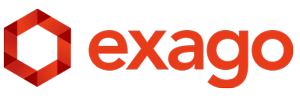In a weak growth environment, with low investments and rising risks, companies gamble on cost-cutting to ensure that they are prepared and equipped to grow stronger, as they wait for better times to come. Yet, cost-cutting is more and more seen as a way to drive growth, rather than as way to survive or avoid insolvency.
With recession, macroeconomic concerns, digital disruption and commodity price fluctuations fueling uncertainty, Deloitte’s 2016 data illustrates this shift from survival to growth. Its fourth biennial cost survey shows that the ‘save to grow’ strategy of ‘using cost reduction to fund growth initiatives’ remains prominent today.
However, in 2016, many US companies were ‘simultaneously pursuing seemingly conflicting goals of aggressive growth and aggressive cost improvement’. Deloitte calls this the ‘thriving in uncertainty’ paradox.
Then, whatever the future holds, the key to cost programme success lies in ‘choosing a cost management strategy that aligns with your company’s needs and is capable of delivering the required level of savings’. In this context, tactical initiatives to pursue aggressive cost targets will not be enough, and are likely to be ‘a recipe for failure’, the report adds.
The change has to go deeper then, beyond tactics, reaching a strategic level. This means that a company’s most valuable assets, people and their talents, become top priorities, ‘consistent with a growth mindset, since having qualified workers and deploying them effectively is key to successful growth’, writes Deloitte.
Andreia Agostinho Dias, Sales Executive
Diana Neves de Carvalho, Exago’s CEO
You can access the full paper here
